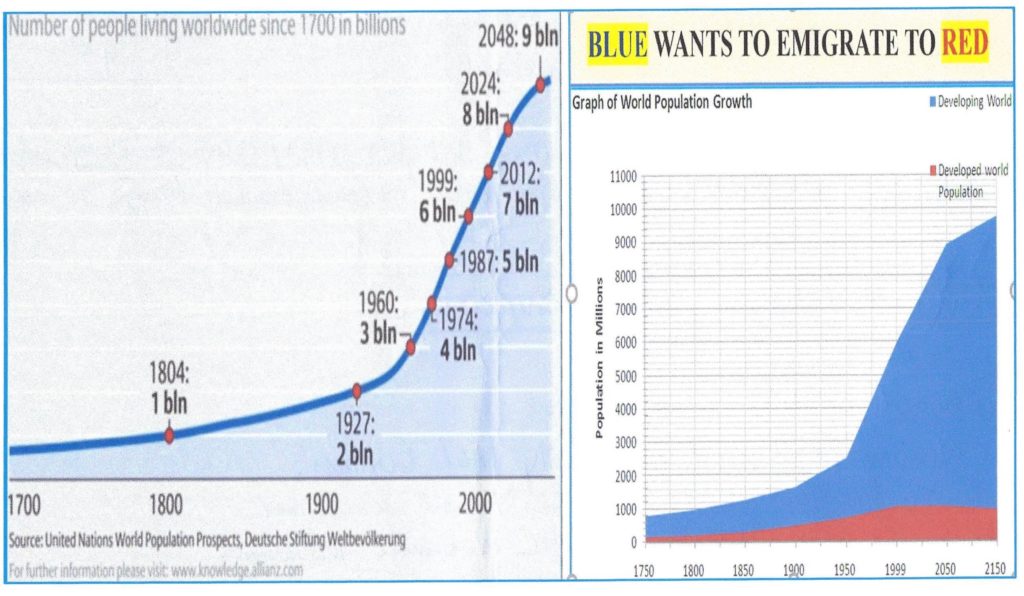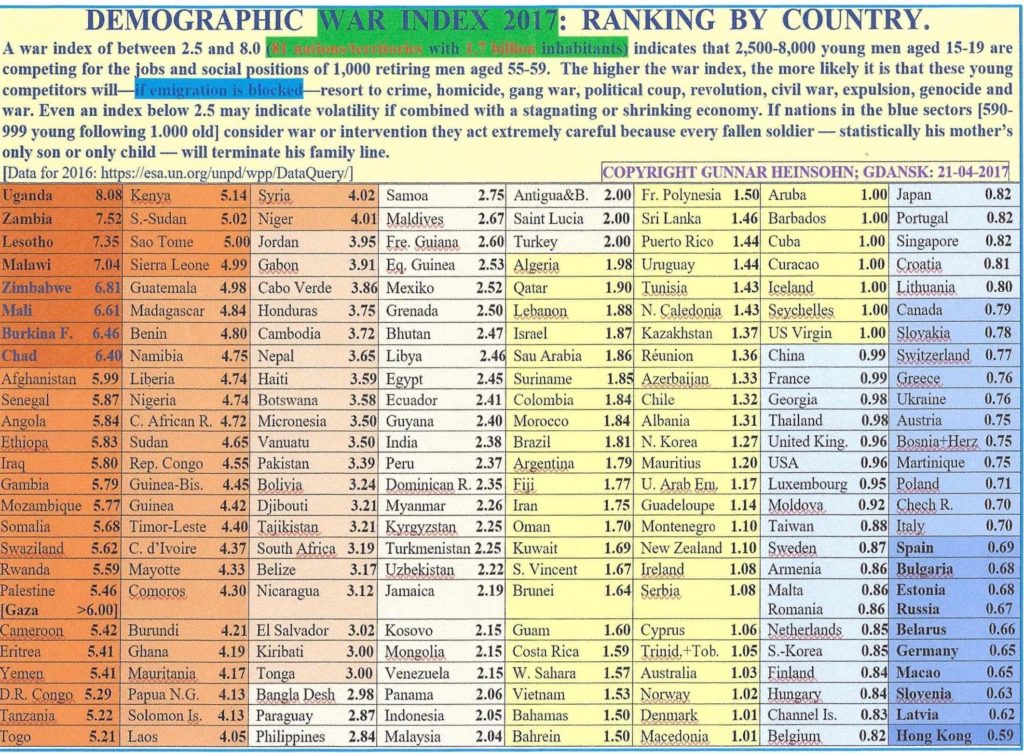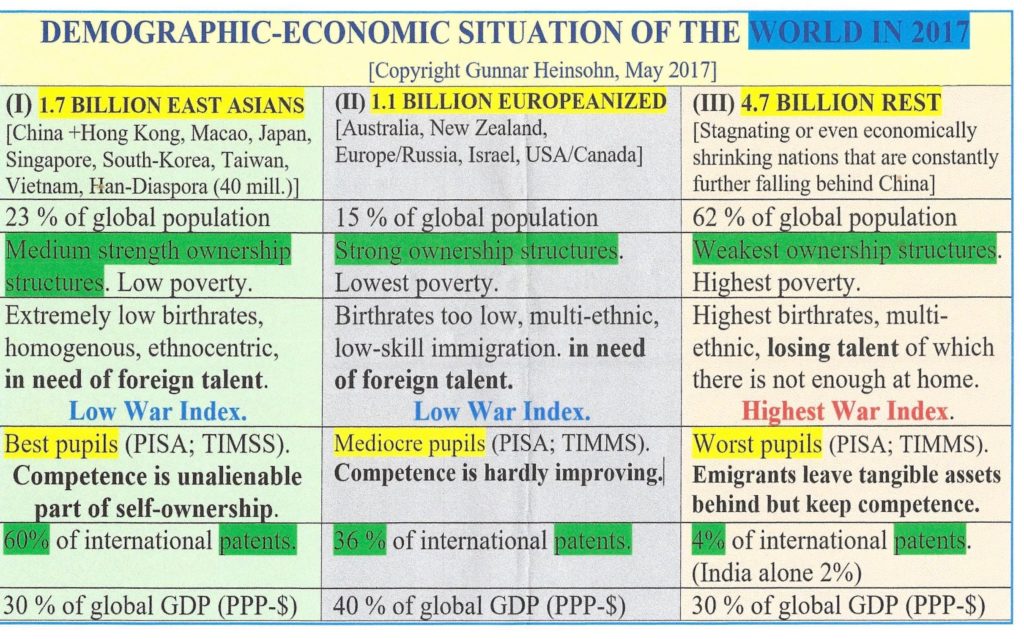We have recently made a radical transformation in our business model. Instead of simply hiring employees to sell our product, Pipeliner CRM, and paying them as such, we are partnering with people globally and, when they sell, actually letting them keep a really healthy portion of whatever the final selling price is.
Our product is actually a vehicle for our overall strategy. The idea is to use Pipeliner CRM to help create businesses all over the world that can continue to succeed and thrive as we do. While we’re technically the “entrepreneur” of the business, we refer to our partners as “entrepreneurs within the enterprise” as they factually are—or, as a term, we coined, “salespreneurs.” They’re taking risks, too, and reaping the rewards along with us.
Understanding of Globalization
What is the reasoning behind this mission? Globalization actually began some time ago. But in my opinion, it has not been completely understood, even to this day.
In order to see and act upon the future, we must be able to view the world in its totality. I don’t say this because I’m against nationalization—I’m not. But every country, and this planet as a whole must work out how to play to our collective strengths.
As one index of globalization, we can look at travel. In 2018, a staggering 1.4 billion people traveled to somewhere else in the world, which was 6 percent higher than the previous year. Minimally, that figure is expected to rise an additional 4 percent in 2019.
Or as a simpler, more powerful view, we can step back and, through a very famous photograph, see the world as the small blue ball it really is. At least for the time being and into the near future, this Earth is all we have. We all live here. We obviously must save our environment—but we must also look to business. For its business that will ultimately unite and save the world, not politics.
Technology and Connection
Technology has grown and innovated exponentially over the last decade, and will only continue to do so. Companies have become more efficient, and as they have done so, they have increasingly integrated technology into the workforce.
The continuing growth in technology is unstoppable. Just take a look at the 30-million-plus programmers working within the open source repository GitHub, and the future is clearly foretold.
This continuing astronomical growth in technology means that billions of people around the world are connecting to each other. Just look at Facebook, with its 2.7 billion users. This connection means that people in regions of radically different economic levels can view each other. Let’s say you live in a less developed area of the world, and you have 5 children, and you know that there is a limited chance of them all getting jobs as they grow up. Looking at beautiful pictures of the US or some other economically advanced part of the world, what might you decide? You’d most likely leave and go to what you perceive is a more advantageous place. It’s a simple but ongoing problem: people who are at a constant disadvantage see their only option is migrating to places with higher standards of living.
Simply comparing the average incomes in Zimbabwe and Silicon Valley would drive many in the former to want to move! According to one report, Silicon Valley tech employers pay their employees more than $200,000 per year, while tech employees in Zimbabwe are paid $7,885 per year. An average tech employee in Silicon Valley makes 25 times what a tech employee in Zimbabwe makes. You can see that the prospect of moving to the US appears almost irresistible.
We can look at figures for 2017 and see how big the draw of migration actually is. A majority of the world’s population—62 percent, or 4.7 billion people—live in stagnating or even economically declining nations. These regions have the weakest ownership structures and the highest poverty. The talent of such nations emigrates to other countries, depriving their own countries of skills needed to build a robust economy.
If trends remain unchanged, mass emigration and the inevitable brain-drain from high-population poorer areas to the more affluent, less populated areas will only increase. In the end this is likely to have a double negative impact: on the one hand, the poorer areas are often robbed of their best and brightest so the job of building up their own economy is much more difficult. On the other hand, the more developed areas start to strain under the weight of this migration and can no longer sustain the level of services they have today.

What is the lesson to be learned here? It is obvious that without opportunity and well-paid jobs people will leave for greener pastures. We certainly saw this a few hundred years ago in the US and Europe, with the advent of the Industrial Revolution—millions of deserted farms and moved to cities, leaving their small towns and communities, where no one wanted to invest in infrastructure, to shrink and fade away.
War Index
There is a metric called the War Index which combines these factors in a different way and paints a very interesting picture. Countries with a high War Index have between 2,500 and 8,000 young people aged 15 – 19 competing for the jobs and social positions of 1,000 retiring people aged 55 – 59. The higher the War Index, the greater the potential of these young people, (if emigration is not an option), being drawn to crime, extreme politics, revolution, and war.

Our program is already starting to blossom in countries with a high War Index, including Zambia, Ethiopia, Cameroon, Tanzania, Nigeria, Ghana, Kenya, South Africa, Zimbabwe, Pakistan and Bangladesh. The Pipeliner program directly provides revenue and long-term economic growth in local communities. In other words, we are offering the opportunity to live and work where you are as opposed to feeling like you have no choice but to leave. Obviously the societal impact of more people earning a good income is obvious.
Restoring Environment and Infrastructure
At the same time, communities, instead of shrinking, once again start to grow.
Close to a thousand people (and this number is growing rapidly daily) from 14 different countries have joined the Pipeliner program. They are often providing some much needed economic boost to the communities they live in.
Such a program also has an incredibly positive impact on the environment. Because people can work directly in their own areas, time and resources aren’t wasted in travel to and from places of employment. Where I am located today in Los Angeles, we have employees who would lose 4 to 5 hours a day if they had to travel to and from our Santa Monica company headquarters. Just taking this as an example, how much fossil fuel would be needlessly consumed in all that driving, and how much excess carbon would be released into the atmosphere? Fortunately, this doesn’t happen because we are a virtual company.
On a personal level, how exhausted would a person be after a couple of months of such travel, sitting, say, for more than 20 hours per week in a car? This on top of losing production and costing all kinds of additional money?
Beyond the environmental implications, this back-and-forth travel also means that people miss out on time with their families, with their children and spouses. They come home and fall asleep in front of the TV. The next day, they get up and do it all again. This is the very definition of a rat-race.
When someone doesn’t have to commute, what could they do with the freed-up time? In addition to spending more time with the family, a person could help to rebuild the community. They could be a local sports trainer, or serve on a school board, for example.
There is even a statistic out there that relates overall physical health to a healthy community.
You can see that a concept such as ours, aimed at decentralizing and allowing people to work where they are, provides a healthier, happier, more green concept to wherever people are living around the world. I’m confident that this trend will only strengthen, just based on the fact that internet connectivity is constantly being improved.
I do understand that some people are more gregarious than others, and would rather work around people than be isolated at home. If that’s the case, they can rent a desk or even an office in one of the new co-working spaces sprouting up in cities today. You can have your own enterprise, but at the same time work in a more social space with others.
Looking at the bigger picture, we know that trade is the central component for maintaining peace. Two individuals, or two nations, cannot be at war when they’re engaged in trade. And what is the central component to trade? Sales!
Education
We don’t just bring a business model, though, because that by itself won’t work. You also need to educate people. Skilled people are generally more successful so providing a skill-set is critical.
As such, in addition to the product, we’re providing the education and a full-blown blueprint to be successful entrepreneurs without having the serious financial risk usually associated with starting your own business which many couldn’t afford anyway.
We’re teaching remotely, through our Learning Management System. That means anyone, anywhere, can take advantage of and be trained in our program.
A Turnkey Package
Pipeliner is providing the most progressive and green approach of any company within our space. With the salespreneur concept, we bring an entrepreneurial approach to areas where building a company would normally be difficult. We provide the product and the education necessary to build that enterprise. We’re even providing additional products so they can excel in other vital areas such as marketing. All that the “salespreneur” has to provide is the time and energy. They can begin part-time, if they wish, and either keep it part-time as extra income or become full time and build a real business.
Why are we doing this? Because we have a complete belief and faith in sales—we believe that sales are the wealth creators and the peace producers of the world. Everything begins with sales, all the way back to the Stone Age, when trade began. Now, as then, sales and trade are the answer to the economic inequalities and turmoil of the world.





















Comments (2)
Pipeliner is bringing a revolution in sales management.
Truly, Pipeliner is the winning team, dont hesitate to join.